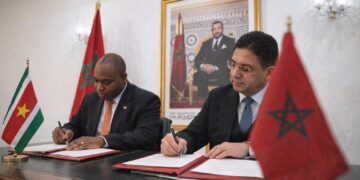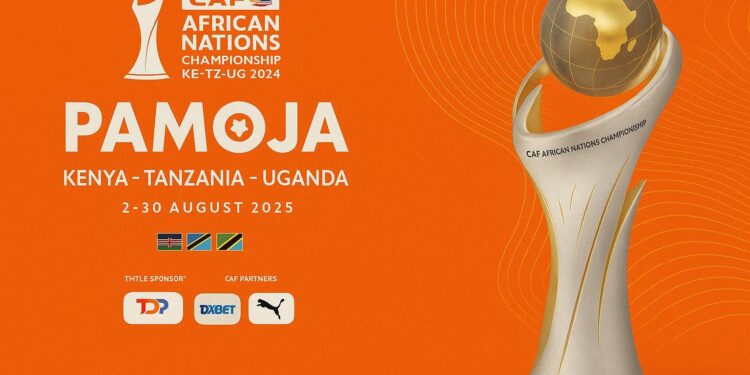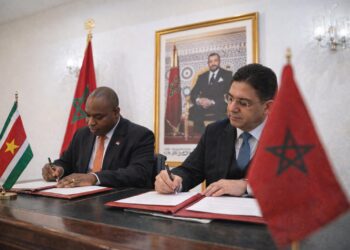A Swahili Motto for a Continental Stage
By unveiling the “Pamoja” identity, the Confederation of African Football has wrapped the 2024 African Nations Championship in a single Swahili word that evokes unity, togetherness and shared purpose. According to the Cairo-based governing body, the visual palette borrows from East Africa’s terracotta highlands and Lake Victoria’s cobalt undertones, while the typography echoes kitenge patterns that resonate from Dar es Salaam to Kisangani (CAF press release, 21 July 2024). The choice of Swahili—a lingua franca for more than 100 million Africans—signals an ambition that extends beyond the tournament’s thirty-two scheduled matches. It aims to project a continental aspiration: that football can offer, even fleetingly, a common civic grammar in an era of fragmented security and trade blocs.
Strategic Messaging and Digital Footprints
In strategic communications terms, Pamoja looks engineered for maximum digital virality. CAF’s media unit has indicated that TikTok partnerships, region-specific augmented-reality filters and a docu-series charting grassroots stories from Kinshasa to Kigali are under consideration (Sports Business Africa, 24 July 2024). Such content is expected to dovetail with TotalEnergies’ brand strategy on renewable transition, intertwining the hydrocarbons group’s corporate narrative with the promise of young local athletes competing before a truly African audience. While the final marketing budget remains undisclosed, insiders in Nairobi suggest it could surpass figures seen for CHAN Algeria 2022, reflecting the pivot toward data-driven fan engagement.
Regional Diplomacy through Co-Hosting
For the first time in the tournament’s history, three countries—Kenya, Uganda and Tanzania—will serve as joint hosts from 2 to 30 August 2025, following scheduling adjustments designed to avoid a clash with the expanded FIFA Club World Cup. Officials in Kampala argue that co-organisation constitutes more than logistical pragmatism. It is, they say, a rehearsal for deeper infrastructure integration under the East African Community’s Vision 2050 (Ugandan Ministry of Foreign Affairs briefing, 18 July 2024). Rail corridors, cross-border e-visa protocols and shared cyber-security frameworks have all been fast-tracked, ostensibly to ensure a seamless flow of teams and supporters. Those same mechanisms, once footballers depart, may endure as templates for broader economic convergence.
Local Talent and Economic Spillovers
Unlike the Africa Cup of Nations, CHAN is reserved for players active in domestic leagues, rendering it a rare spotlight for home-grown talent typically overshadowed by European expatriates. According to sports economist Dr René Wallechinsky, such a format increases scouting activity by an estimated thirty-five percent in host cities, stimulating ancillary revenues in hospitality and broadcast rights. In Nairobi’s Kasarani district, hotel chains have begun advance recruitment of an additional three thousand temporary staff, while Dar es Salaam’s city council projects a fifteen percent rise in local transport receipts during the event. These figures may appear modest in global megasport terms, yet they remain consequential for economies recalibrating after pandemic-era contractions.
A Congolese Perspective on Pan-African Unity
From Brazzaville, the campaign resonates with historical undertones. Congo-Brazzaville hosted the first African Games in 1965 and has routinely framed sport as a vector of diplomacy. Speaking on condition of anonymity, a senior adviser at the Ministry of Foreign Affairs praised CAF’s emphasis on fraternity, adding that President Denis Sassou Nguesso has long argued for ‘cultural instruments that transcend the arithmetic of commodity prices’. The Republic’s own domestic league, the Ligue 1, expects to dispatch scouts to monitor CHAN participants with an eye toward bilateral training exchanges, thereby translating continental rhetoric into concrete athletic pathways.
Quiet Challenges beneath the Optimism
Notwithstanding the celebratory tone, underlying challenges persist. Stadium renovations in Kisumu and Mwanza are racing against compressed timelines; cost overruns have already prompted the Tanzanian parliament’s Budget Committee to call for supplemental appropriations (Dar es Salaam Daily, 20 July 2024). Security planners, mindful of precedent, are coordinating interoperable protocols under INTERPOL’s Project Stadia to mitigate transnational threats. Meanwhile, climate analysts warn that August humidity along Lake Victoria’s shoreline could test athlete endurance, reviving debates on the optimal calendar for continental competitions. Yet CAF’s Secretary-General Véron Mosengo-Omba remains publicly sanguine, insisting that ‘where obstacles surface, partnership will prevail’.
A Future Framed in Swahili and Floodlights
If the Pamoja narrative withstands the scrutiny of deadlines and expectations, CHAN 2024 may achieve more than a fortnight of compelling fixtures. It could illustrate the potency of soft power in a region negotiating delicate political equilibria. For Congo-Brazzaville and its peers, the campaign also reinforces a continental habitus that views football as a diplomatic language capable of moderating tensions and accelerating integration. Whether those ambitions endure beyond the last whistle remains uncertain, but the groundwork—laid in a single Swahili word—suggests that African football’s experiment with unity has entered a decisive phase.











































